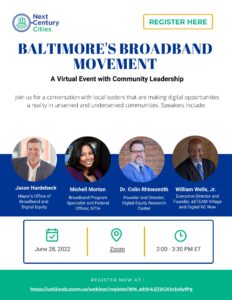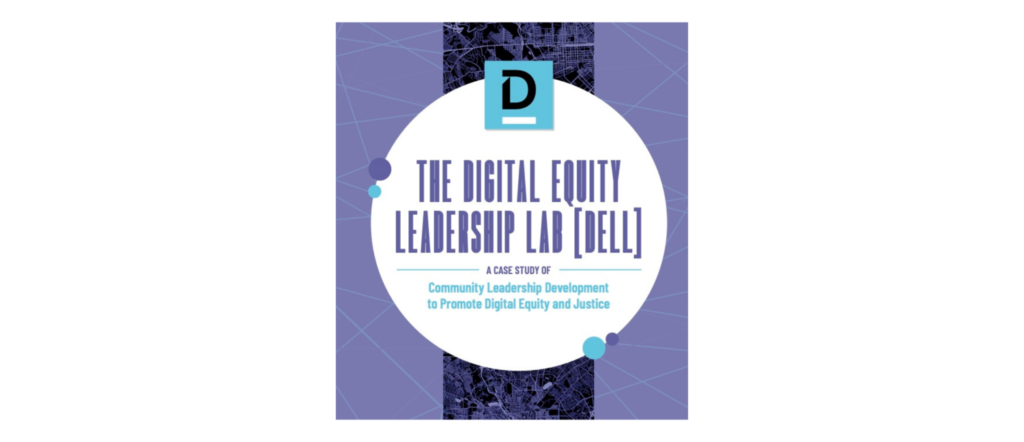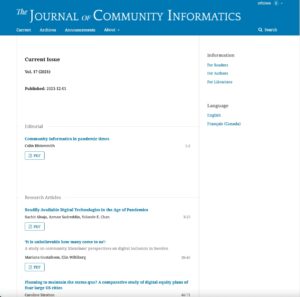 Today at 2:00pm Eastern Time, Next Century Cities will host the following event, titled “Baltimore’s Broadband Movement : A Virtual Event with Community Leadership.”
Today at 2:00pm Eastern Time, Next Century Cities will host the following event, titled “Baltimore’s Broadband Movement : A Virtual Event with Community Leadership.”
I look forward to joining these amazing leaders: Jason Hardebeck, Mayor’s Office of Broadband and Digital Equity, William Wells, Executive Director and Founder, aSTEAM Village and Digital KC Now, and Michell Morton, Broadband Program Specialist and Federal Program Officer, National Telecommunications and Information Administration.
During the event, I will discuss findings from my case study, titled “The Digital Equity Leadership Lab: A Case Study of Community Leadership Development to Promote Digital Equity and Justice” for the Robert W. Deutsch Foundation published earlier this year. Other cities and states planning to receive federal Digital Equity Grant funds will benefit from learning more about the City of Baltimore’s work to promote digital equity and digital justice.
Here is the description of the event:
“Unprecedented federal and state funding programs have changed broadband possibilities for communities nationwide. In Baltimore, a city where almost one and three residents face barriers to reliable, high-speed connectivity, broadband investments could help to revitalize communities that have been overlooked or excluded from the digital economy.
Join us for a conversation with local leaders who are developing ways to bring digital opportunities within reach for every Baltimore resident and the community organizers that make connectivity goals a reality.”
Here is a link to my presentation slides.



